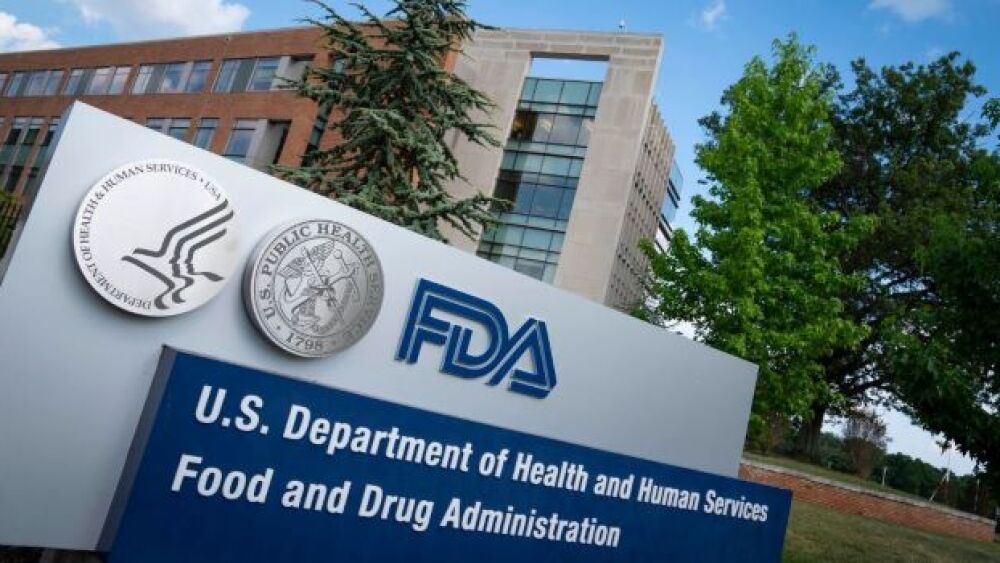The FDA’s top five approvals in 2022 represent an eclectic mix of cancer, cardiovascular and rare disease drugs.
Courtesy of Sarah Silbiger/Getty Images
As we move into 2023, BioSpace takes a pause to reflect on the year gone by and some of the most remarkable news bits. Today, we look at the top five noteworthy FDA drug and biologic therapy approvals in 2022.
These newly approved medicines stand out as significant advancements in treating certain forms of cancer, cardiovascular disease and rare inherited disorders.
1. Mirati Therapeutics’ Krazati (adagrasib)
In early December, the FDA granted accelerated approval to Krazati for adults with KRAS G12C mutated, metastatic non-small cell lung cancer. Krazati is a potent oral small molecule inhibitor of KRAS G12C.
Krazati is only the second KRAS inhibitor approved by the agency – a cancer target that was once believed to be undruggable. Amgen’s Lumakras was the first KRAS inhibitor to hit the market in May 2021.
While estimates vary, Wall Street’s peak sales forecast has the novel lung cancer therapy generating more than $1 billion in sales at peak. Mirati has been a staple of the buyout rumor mill in 2022 due to these upbeat sales predictions.
On the clinical side, “It’s always good to have more than one class because some people do tolerate one better than the other one,” said Alexander Spira, M.D., an oncologist and co-director of the Virginia Cancer Specialists Research Institution, in a prepared statement.
2. Alnylam Pharmaceuticals’ Amvuttra (vutrisiran)
In June, the FDA approved Alnylam’s Amvuttra for hereditary transthyretin-mediated amyloidosis (hATTR) with polyneuropathy. Amvuttra belongs to an emerging class of novel treatments known as RNA interference therapeutics (RNAi for short).
This approval is important for two reasons. Clinically, Amvuttra’s green light from the FDA for hATTR with polyneuropathy provides another viable treatment option for patients with this devastating nerve disorder.
Michael Polydefkis, M.D., Johns Hopkins Neurology and HELIOS-A Study investigator, said the approval is very encouraging for the hATTR amyloidosis community, adding that Amvuttra has demonstrated the potential to halt or reverse polyneuropathy progression in patients with an acceptable safety profile.
Secondly, Amvuttra’s approval in this setting could set the stage for a run on RNAi drugmakers next year. Alnylam, for its part, is likely a top target within the RNAi space.
3. Bristol Myers Squibb’s Camzyos (mavacamten)
In April, BMS announced the FDA approval of Camzyos to treat symptomatic New York Heart Association class II-III obstructive hypertrophic cardiomyopathy (obstructive HCM) to improve functional capacity and symptoms.
Camzyos was the centerpiece of Bristol’s $13.1 billion buyout of MyoKardia in late 2020. With peak sales estimated at more than $4 billion per year, the heart failure medication is widely expected to play a vital role in the pharma giant’s battle against a wave of upcoming patent expiries for top-selling products like Opdivo and Eliquis.
Camzyos is the only FDA-approved allosteric and reversible inhibitor selective for cardiac myosin that targets the underlying pathophysiology of obstructive HCM, according to the company.
“With this approval, cardiologists now have a new pharmacological option for eligible patients that targets the underlying pathophysiology of the disease,” said Milind Desai, M.D., director of the Hypertrophic Cardiomyopathy Center and director of clinical operations in Cleveland Clinic’s Heart Vascular & Thoracic Institute.
4. bluebird bio’s Skysona (eli-cel)
In September, bluebird bio notched its second FDA approval of the year with Skysona, a single-use gene therapy indicated for patients with the rare neurological disorder cerebral adrenoleukodystrophy (CALD).
Skysona is noteworthy for two reasons. First, the one-time infusion will reportedly cost $3 million, making it the priciest therapeutic on the market. Second, it adds to a growing list of commercially available gene therapies in the U.S.
Not all that long ago, the field of gene therapy was marred by unsightly safety issues and less-than-stellar efficacy results. Next-generation developers like bluebird, however, have radically changed the space with safer and more efficacious products.
5. Amylyx Pharmaceuticals’ Relyvrio (AMX0035)
In September, the FDA green-lit Amylyx’s hotly contested amyotrophic lateral sclerosis (ALS) drug, Relyvrio. ALS is also known as Lou Gehrig’s disease.
Relyvrio is an interesting story for two big reasons.
First and perhaps most importantly, no disease-modifying treatments were available to ALS patients prior to Relyvrio’s approval. As such, this FDA approval qualifies as a significant advancement in the treatment paradigm for this progressive neurodegenerative disease.
Second, Relyvrio’s regulatory review was anything but business as usual. In March, the FDA’s panel of experts initially voted against approving the drug, despite the high unmet medical need in ALS.
However, the agency later agreed to a second expert panel vote after the company submitted new analysis. This new analysis led to a positive panel vote, paving the way for Relyvrio’s approval.
Wall Street expects Relyvrio to rake in nearly $500 million per year at peak commercial performance.





